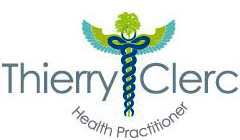Thierry’s core speciality is in clinical homeopathy. This branch of homeopathy puts a strong emphasis on the importance of nutrition. Poor nutritional habits and dietary misconceptions can affect the body’s endocrine system and create hormonal imbalance.
The endocrine system is made up of important organs in the body that release hormone to regulate the key processes that govern our body, at all levels, from cellular metabolism to “whole body” control.
General nutritional advice for the pancreas (and diabetes)
It is important to follow a diet, which does not disrupt the overall levels of sugar in the blood. The more stable the blood sugar balance is, the better. The best and most simple diet if based on a low glycemic load (GL), which is a measure of easily releasable sugar in each food. Check our Books’ section in More resources for some suggestions.
In parallel, including some forms of daily physical activity and relaxation exercise (see our relaxation section).
For at least the first 6 months of treatment, follow strictly these guidelines:
• Avoid all additional sugar in food, including refined, artificial and simple sugar.
• Switch from refined white rice; white flour to whole rice and whole wheat.
• Avoid all man-made fat: hydrogenated fats, margarines and trans fat.
• Eat a diet based on raw, organic, seasonal vegetables (60% of your daily food volume).
• Increase your intake of pulses, lentils, quinoa and oats/porridge.
• Do not let yourself go hungry. Always have a healthy snack with you.
• The following spices have also shown to reduce blood sugar levels: cayenne pepper, cinnamon (1/2 teaspoon a day is the ideal dose), turmeric and saffron.
• Finally, liquorice tea is excellent to regulate blood sugar balance.
General nutritional advice to support your adrenal glands
Follow the general advice of the Nervous System section, and strictly adhere to the rules below:
• If you can, avoid alcohol, caffeine, and tobacco (or at least stop 2 or 3 days a week).
• Increase your intake of good quality fat, such as from fish (salmon, tuna, herring, mackerel, sardine) and cold-pressed vegetable oils.
• Avoid all processed foods.
General nutritional suggestions for an under-active thyroid
• Avoid stimulants such as tea, coffee, nicotine and soft drinks.
• Increase your intake of green leafy vegetables. Seaweed is excellent, as well as locally grown cabbage, spinach and kale.
• Avoid any dairy, processed fats and added sugars.
• Eat fish & meat (poultry is OK) to help with protein intake.
• Increase your intake of apricots, dates, egg yolk, prunes, raw seeds, and whole grains.
• Do not take any soya dairy-alternatives (especially soya milk) during the duration of the treatment.
General nutritional suggestions for an over-active thyroid
• Follow the same suggestions as for “under-active thyroid”, but also avoid the following: raw fish, cow’s dairy products, goats/sheep raw milk and cheese.
• Follow the alkaline diet in the Immune/Lymphatic section.
Please, use our advice only as part of a treatment from our health practitioner. Also, refer to our Disclaimer and Legal Requirements.
Thierry Clerc, MARH, Rhom, MSc
Registered Health Practitioner, Cambridge (UK)
Clinical Homeopath, Bioresonance Therapist, Nutritionist
Thierry Clerc is qualified and insured to practice as a homeopath and nutritionist in the United Kingdom and the European Union.

